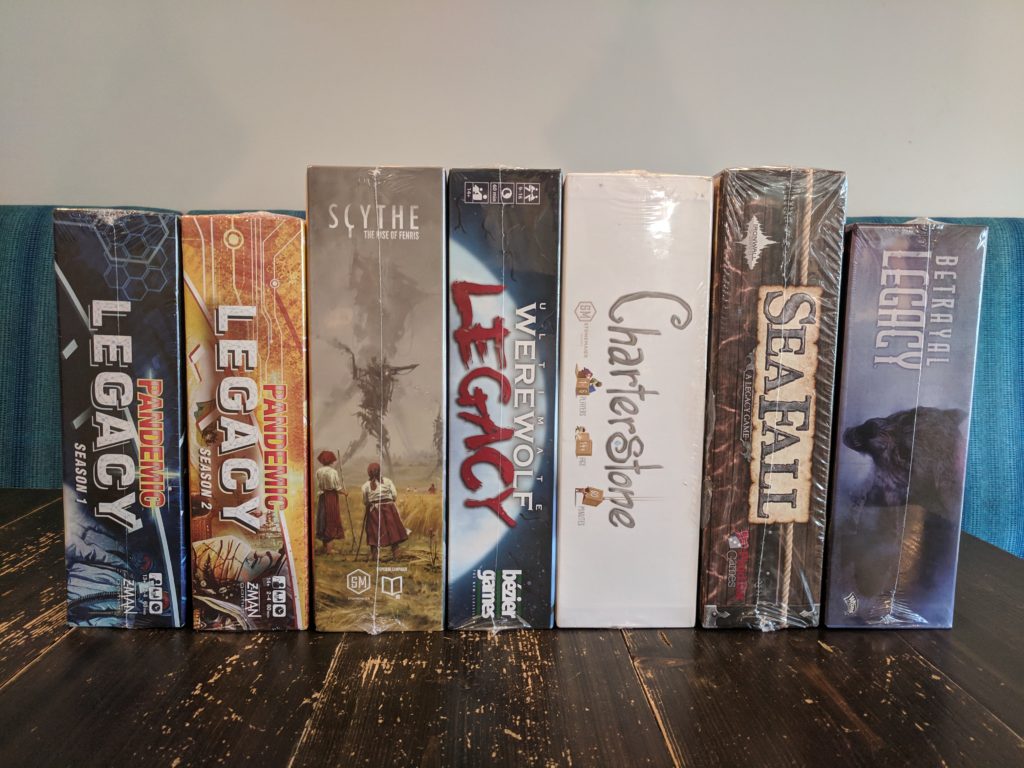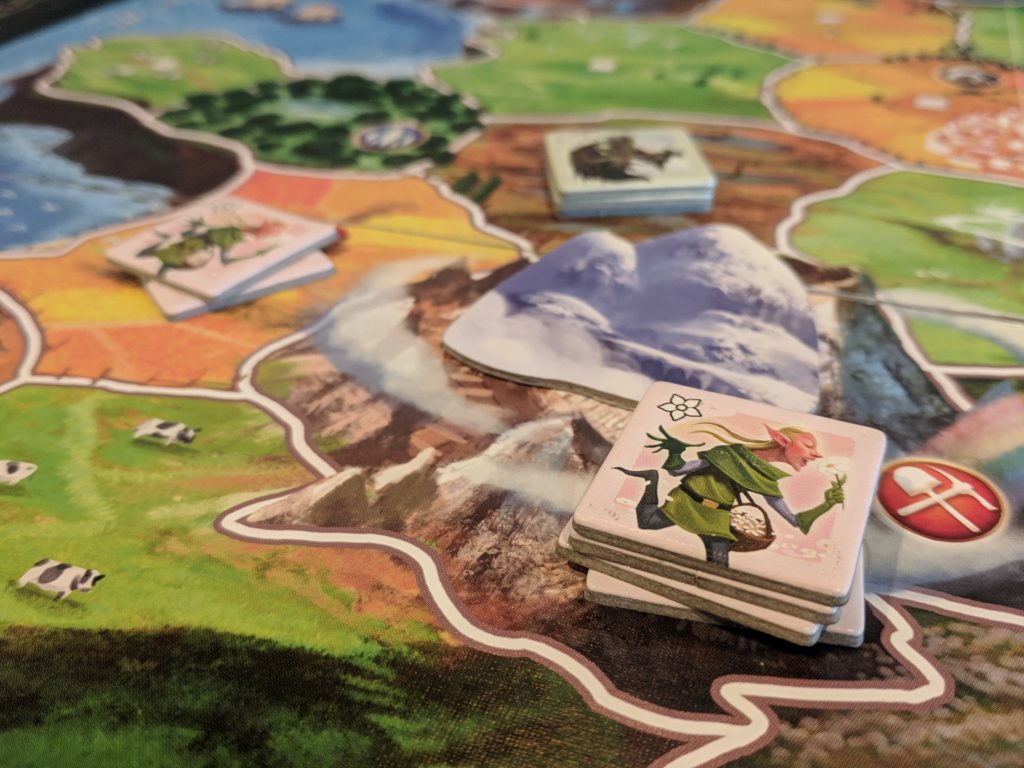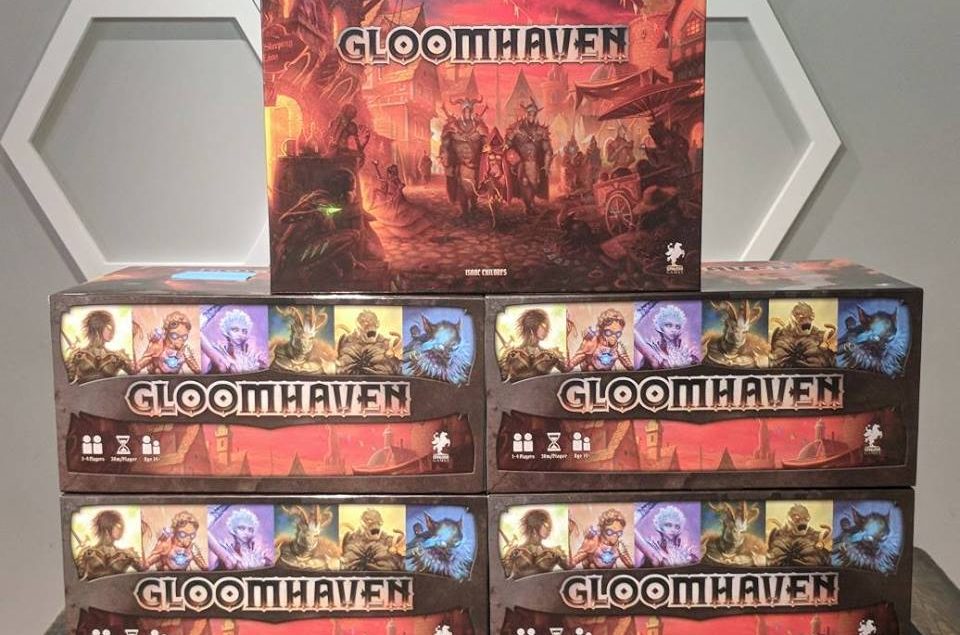Game Mechanics Part 4: Area Control & Legacy
Area Control
Is there anything better than standing atop your hill and declaring with triumphant gusto, “This is mine!”? Area control games are all about taking territories for yourself and denying them to your opponents. Sometimes the battle for territorial dominance is a direct conflict, such as marching your army in and crushing your foe, but it can also be an indirect conflict, such as just getting to that space before anyone else can. Either way, gaining control of that area is usually considered crucial to earning resources, victory points, and winning in general.

One of the coolest things about area control games is that they focus on the core concept of expansion. It feels great to stake your claim on a new territory, and you definitely want to defend it because losing a region that you worked so hard to attain feels just awful. If the sight of your little coloured tokens gradually spreading across the board like a coffee stain on a newspaper doesn’t fill you with a burgeoning sense of glee, then perhaps you need to look closer at the crestfallen expressions of your opponents or the details on regions you add to your expanding influence. See that sheep printed on there? That’s yours now.
Legacy

The legacy game mechanic is a recent development and has taken the gaming world by storm in the last few years. Game designer Rob Daviau was the first to implement this mechanic into a game, Risk Legacy, which was published in 2011. The concept of this game mechanic is that every session changes the game in some way, creating a narrative based on the players actions and game results. Many games using this mechanic require that the board be changed in some ways, such as stickers being placed on the board, names written on cards, and even components torn to shreds.
While permanently altering or destroying parts of the game reduces its playability, keep in mind that most legacy games are designed to be played through one time over several sessions. Pandemic Legacy Season One for example has the potential for 12 games, one for each month of the year (although you don’t need to hold to that schedule). Some games, Pandemic for one, remain playable after the campaign or legacy is finished, allowing players to crack it open long after the last mystery box lies discarded.
Games that use these mechanics
Risk is probably the most infamous area control game out there, but for those interested in engaging in some slugging it out style warfare, it’s hard to go wrong with Smallworld. Smallworld is a game about conquering territories with fantasy races as they go through ages of glory followed by decay. It allows each player to choose a random combination of race — such as skeleton, wizard, ratmen — and special trait/ability — like diplomat, berserk, or bivouacking — for some terrifying, and often silly, combinations. I’m looking at you flying giants. Whatever race you pick, eventually they will spread thin, and go into decline, allowing you to select a new and even more bizarre combination.

For legacy games, and indeed all games, Gloomhaven has stolen the crown and sits atop a throne engraved: #1 on boardgamegeek. It’s a massive box that contains more than 20 pounds worth of miniatures, manuals, cards, things, and stuff. If an epic game is what you’re after, Gloomhaven promises that and so much more. Mystery, adventure, heroes, monsters, dungeon crawling, anthropomorphic animals… The testimonials and reviews indicate the fulfilment of Gloomhaven’s oath to ensnare player’s in a well-crafted, fascinating world where you can make your own fate. It’s a heavy game, both figuratively and actually, and is a recommended adventure for seasoned gamers, or those with the mental fortitude to tackle a thick rulebook.
These are just some of the games using these mechanics, but there are many more! The new addition of legacy as a game mechanic is exciting because it demonstrates that these categories are constantly evolving and being added to. But for now, this concludes our series on board game mechanics. Next week we’ll be covering our second favourite word beginning with the letter “B”: beer!

